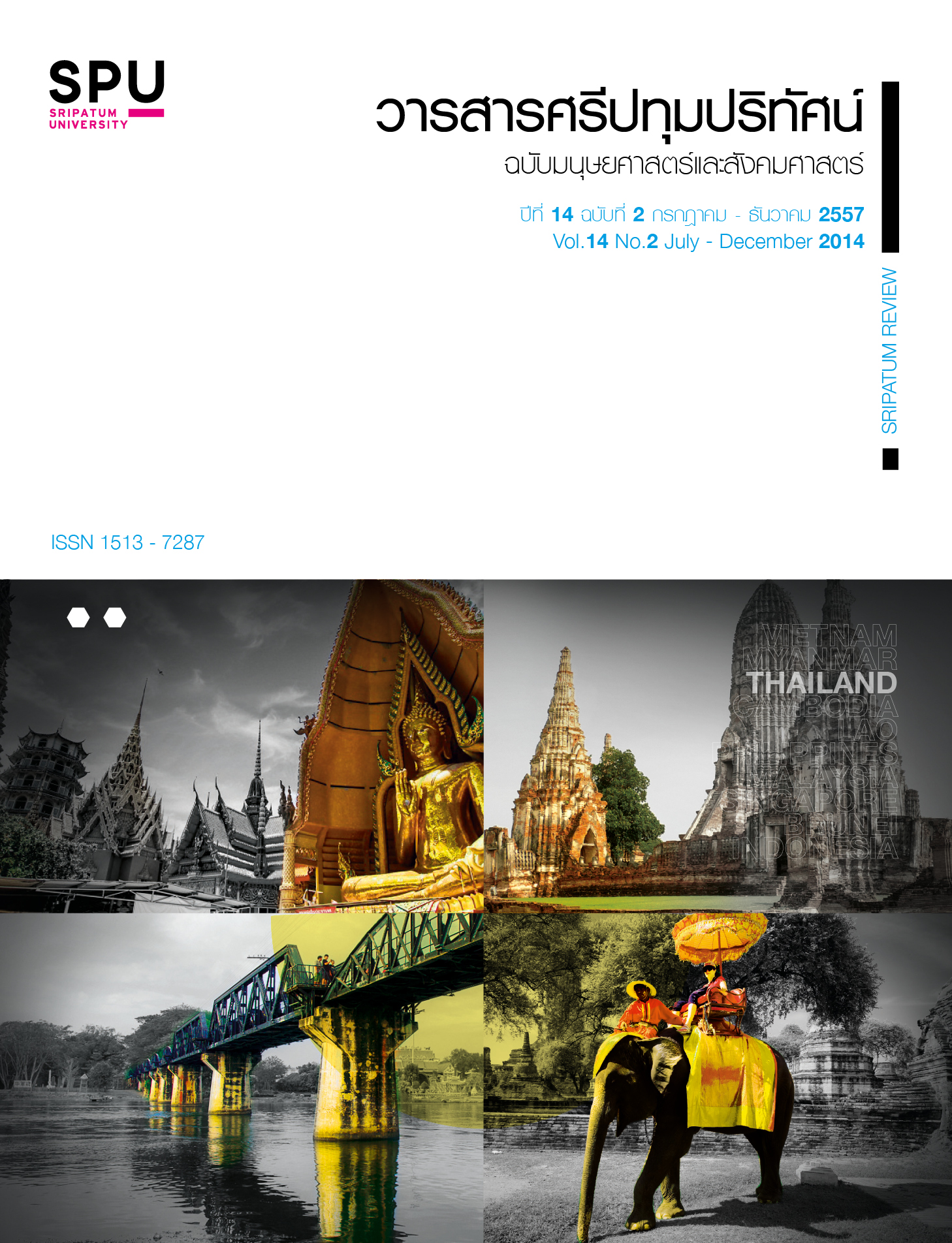INDIRECT SPEECH ACTS OF STANDARD THAI SPEAKERS WITH DIFFERENT SOCIAL STATUSES
Main Article Content
Abstract
One common practice to convey politeness is through the use of indirect speech acts, by which the form of the utterance differs from the intended meaning of the speakers. The current study aims at studying the forms and functions of the indirect speech acts of standard Thai speakers with different social statuses. A questionnaire was employed to collect data for analysis from 30 standard Thai native speakers in Bangkok Metropolis. The results reveal different forms of indirect speech acts, namely, declarative, interrogative and imperative forms. In addition, it is also found that the indirect speech acts are intended to function both as showing politeness and impoliteness. When being used in a conversation between equal participants, indirect speech acts mostly function to show impoliteness. In contrast, when being used by a speaker whose status is lower than that of an addressee, the indirect speech acts tend to show politeness instead.
Article Details
1. กองบรรณาธิการสงวนสิทธิ์ในการพิจารณาและตัดสินการตีพิมพ์บทความในวารสาร
2. บทความทุกเรื่องจะได้รับการตรวจสอบทางวิชาการโดยผู้ทรงคุณวุฒิ แต่ข้อความและเนื้อหาในบทความที่ตีพิมพ์เป็นความรับผิดชอบของผู้เขียนแต่เพียงผู้เดียว มิใช่ความคิดเห็นและความรับผิดชอบของมหาวิทยาลัยศรีปทุม
3. การคัดลอกอ้างอิงต้องดำเนินการตามการปฏิบัติในหมู่นักวิชาการโดยทั่วไป และสอดคล้องกับกฎหมายที่เกี่ยวข้อง
References
ธนพรรษ สายหรุ่น, ร.อ.หญิง. 2542. “ กลวิธีการปฏิเสธในภาษาอังกฤษของนักศึกษาไทยที่เรียนภาษาอังกฤษเป็นภาษาต่าง ประเทศ: การศึกษาการถ่ายโอนทางวัจนปฏิบัติศาสตร์ ”.วิทยานิพนธ์ปริญญาอักษรศาสตรมหาบัณฑิต สาขาวิชาภาษาศาสตร์ จุฬาลงกรณ์มหาวิทยาลัย.
Blum – Kulka, S. 1987. “ Indirectness and politeness in request; same or different?." In Journal of Pragmatics, Vol. 11.
Brown, P. & Levinson, S.C. 1987. Politeness: Some universals in language usage, Cambridge: Cambridge University Press.
Hara, K. & Kim, M.S. 2004. “ The effect of self – construals on conversational indirectness ." In Journal of Intercultural Relation, Vol. 28.
Marti, Leyla. 2006. " Indirectness and politeness in Turkish - German bilingual and Turkish monolingual requests ." In Journal of Pragmatics, 38, pp. 1836 - 1869.
Morgan, Marcyliena. 2010. " The present action of indirectness and power in everyday life." In Journal of Pragmatics, 42, pp. 283 - 291.
Schouten Barbara C. 2007. " Self - construals and conversational indirectness: A Dutch perspective." In International Journal of Intercultural Relations, 31, pp. 293 - 297.
Searl, J.R. 1975. “ Indirect speech acts." In: Syntax and semantics, Vol 3, New York: Academic Press.
Thomus, J. 1995. Meaning in Interaction: An Introduction to Pragmatics, New York: Longman Group Limited.


